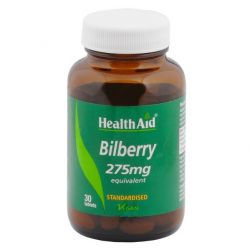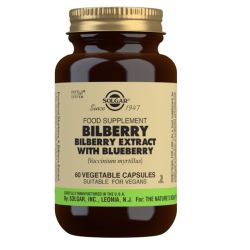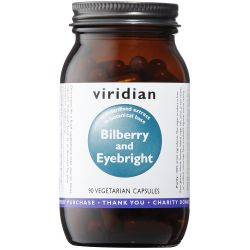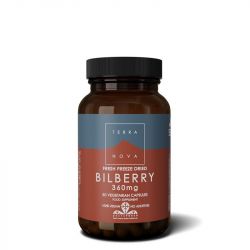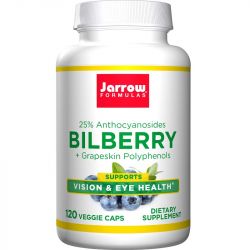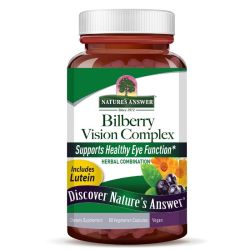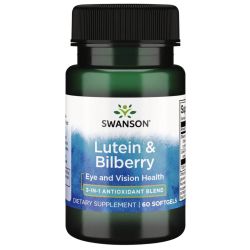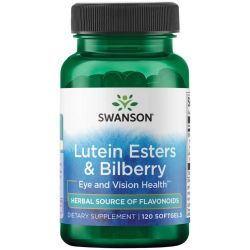Bilberry supplements
Bilberry, scientifically known as Vaccinium myrtillus, is a small, dark blue fruit closely related to blueberries.
Traditionally used in European herbal medicine, bilberry is renowned for its high antioxidant content, particularly anthocyanins, which contribute to its vibrant colour and numerous health benefits.
This powerful fruit is most commonly associated with promoting eye health, as it may help improve night vision and reduce eye strain. Bilberry is also believed to support cardiovascular health by improving circulation and reducing the risk of atherosclerosis. Additionally, its anti-inflammatory properties make it beneficial for your overall health as inflammation is the key cause of many health concerns including your skin and immune system.
Bilberry supplements are typically available in extract form, with common dosages ranging from 160mg to 480mg per day.
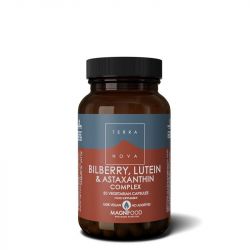 Terranova Bilberry, Lutein & Astaxanthin Complex Vegicaps 50Special Price £19.04 Regular Price £23.80
Terranova Bilberry, Lutein & Astaxanthin Complex Vegicaps 50Special Price £19.04 Regular Price £23.80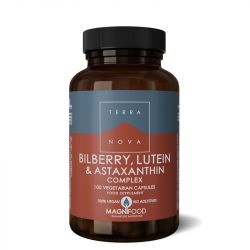 Terranova Bilberry, Lutein & Astaxanthin Complex Vegicaps 100Special Price £34.36 Regular Price £42.95
Terranova Bilberry, Lutein & Astaxanthin Complex Vegicaps 100Special Price £34.36 Regular Price £42.95
All you need to know about Bilberry
What are the health benefits of bilberry supplements?
Bilberry supplements are known for promoting eye health, improving night vision, supporting cardiovascular function, and providing antioxidant protection.
How does bilberry support eye health?
Bilberry contains anthocyanins, which may enhance blood flow to the eyes and improve retinal health, leading to better vision and reduced eye fatigue.
What is the recommended dosage for bilberry extract?
The typical dosage for bilberry extract ranges from 160 mg to 480 mg per day, depending on individual health goals and the concentration of the extract.
Can bilberry help with vision problems?
Yes, bilberry is often used to support vision problems, particularly in low-light conditions, due to its ability to improve retinal function.
Are there any side effects of bilberry?
Bilberry is generally safe for most people, but some may experience mild gastrointestinal upset. It's advisable to start with a lower dose to assess tolerance.
How long does it take for bilberry to show results?
Users may begin to notice improvements in eye health and vision within a few weeks of consistent bilberry supplementation.
Is bilberry effective for supporting cardiovascular health?
Yes, bilberry may improve circulation and help lower cholesterol levels, contributing to overall heart health and reducing the risk of cardiovascular disease.
What is the best time to take bilberry supplements?
Bilberry supplements can be taken at any time, but taking them with meals may enhance absorption and effectiveness.
Is bilberry good for blood sugar control?
Preliminary research suggests that bilberry may help regulate blood sugar levels and improve insulin sensitivity, making it potentially beneficial for those managing diabetes.

